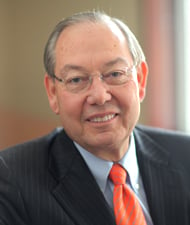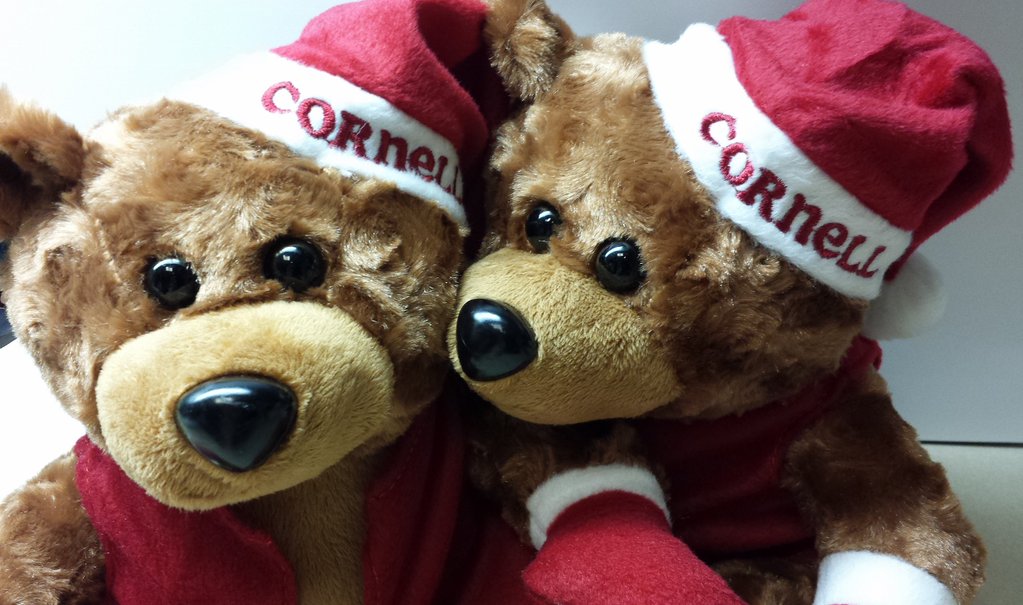You have /5 articles left.
Sign up for a free account or log in.
Visit the campus store at the University of Tennessee at Knoxville, and you can buy a Christmas tree ornament of Santa Claus (in Tennessee orange). Scan the Facebook or Twitter pages of fraternities and sororities at the university and you'll have no problem spotting Christmas parties (yes, Christmas parties, not holiday parties). Tyson House, which serves as the Episcopal and Lutheran ministry on campus, sent out an invitation to legislators for a Christmas party on Sunday, apologized for having a Christmas party in what is technically Advent and urged the lawmakers to "please calm down, have a cookie, and know that Christmas is safe and well at the University of Tennessee."
Why wouldn't Christmas be safe?
 A set of online recommendations from the university's Office for Diversity and Inclusion -- while apparently largely unknown to most students and faculty members as they made their holiday plans -- are now being much discussed, after legislators started criticizing the recommendations and calling for the resignation of Chancellor Jimmy Cheek (right), even though there are no signs at all he was involved in writing or enforcing the document.
A set of online recommendations from the university's Office for Diversity and Inclusion -- while apparently largely unknown to most students and faculty members as they made their holiday plans -- are now being much discussed, after legislators started criticizing the recommendations and calling for the resignation of Chancellor Jimmy Cheek (right), even though there are no signs at all he was involved in writing or enforcing the document.
Among the recommendations: "Holiday parties and celebrations should celebrate and build upon workplace relationships and team morale with no emphasis on religion or culture. Ensure your holiday party is not a Christmas party in disguise." And "Consider having a New Year’s party and include décor and food from multiple religions and cultures. Use it as an opportunity to reinvigorate individuals for the new year’s goals and priorities." (While some have noted that Tennessee has an obligation as a public university not to endorse any religion, the theme of the guidance is about being inclusive more than about legalities.)
Amid the outrage, the Office for Diversity and Inclusion posted a new note on its website, reiterating that the guidance was only advice and not policy. And the office stated explicitly that many people can and do celebrate Christmas at the university. "We honor Christmas as one of the celebrations of the season and the birth of Jesus and the corresponding Christmas observance is one of the Christian holidays on our cultural and religious holidays calendar," says the statement.
But that statement has not stopped the outrage from growing or spreading. All nine Republican members of Congress from Tennessee have denounced the holiday guidance, and a number of them have called for Cheek's resignation. Some state legislators have vowed to cut the university's budget to punish it for being allegedly anti-Christian or anti-Christmas.
While Cheek issued a statement saying that the holiday guidance has been "totally misconstrued," there are some signs that the university may not stand behind it. (To date, the university has not withdrawn the guidance and a spokeswoman reached over the weekend said there had been no changes in policy.)
U.S. Representative John Duncan, a Republican, has been among the strongest critics of the holiday policy. He issued a news release that said in part: “The people on the far left who claim to be tolerant seem to be tolerant of everything except traditional Christianity. They don’t object to Jewish, Muslim, Hindu or any other religion’s traditions. But they go unhinged on anything that hints of traditional Christianity. They try to take down Crosses and Christian emblems. It is a shame and very sad. And it is extremism.”
But Duncan tweeted late Friday, "Spoke to @UTKnoxville Chancellor Jimmy Cheek today. He was very apologetic. Pledged to take action soon on matter." (The university spokeswoman said she didn't know what the tweet meant.)
Another sign that the university may change the guidance came in a statement from Joe DiPietro, president of the University of Tennessee System. He praised Cheek for having been "instrumental" in promoting improvements at the Knoxville campus on many issues, including retention rates and research productivity. "As such, I am carefully considering any decision with the potential to impact the stability and momentum of our state’s flagship institution, in appropriate consultation with our Board of Trustees and with input from UTK faculty, staff and students."
But DiPietro said of the recent controversy that he was discussing "determining very decisive short- and long-term solutions to the issues before us."
Broader Debates Over Diversity
Many at Tennessee see the uproar over holiday parties as the latest manifestation of a conservative backlash against efforts to promote diversity at the university. In September, conservative lawmakers had a similar outcry over guidance from the diversity office at the university about pronoun options that some transgender students prefer. The guide, like the holiday guidance, was strictly voluntary and the university never punished anyone for sticking with "he" and "she," but Tennessee withdrew the document.
Many of the same state legislators who are angry over the holiday guidance have also, of late, been critical of the university's diversity efforts beyond the guidance on transgender pronouns and holiday parties.
Just before the holiday party controversy broke, State Representative Martin Daniel met with Cheek and followed up with a letter to express concern over many of the diversity efforts. Daniel wrote that he endorsed efforts to prevent discrimination and to recruit and graduate minority students.
But he objected to an email message Cheek sent students and faculty members amid a wave of protests over racial tensions on campuses nationwide. Daniel chided Cheek for saying in the email that students were entitled to a "safe" and "welcoming" campus where "we can grow and learn free from hostility." The message, Daniel said, "could reasonably be taken to the university community to avoid disagreeable, insensitive or controversial speech." He also criticized Cheek's email for not stressing the importance of free speech.
And picking up on the language of the president of Oklahoma Wesleyan University, Representative Daniel wrote, "Needless to say, the University of Tennessee is not a day care. It cannot be a guarantor to all that feelings will not be hurt all the time."
Diversity efforts at Tennessee, Daniel said, also cost too much. He said the university is spending $5.5 million on such efforts (including salaries and benefits of those who work on diversity).
Student and faculty leaders who are defending Cheek see a link between his work on diversity generally and the response to the holiday guidance. In nearly identical petitions being circulated by students and professors, the fight over his job is being framed as one that is about diversity, not Christmas.
From the text of the student petition: "Although some in the legislature may not realize that UT is a place for all students, Chancellor Cheek and [Rickey Hall, vice chancellor for diversity and inclusion] have made this a priority. Over his time here he has worked to make this campus a place where students who are the majority and the minority can call home. This certainly goes without saying but #StandwithCheek does not mean you stand for Cheek or all that he has done. It is simply recognizing that removal from office for trying to be inclusive does not merit termination. Moreover, if Chancellor Cheek stays, one should expect students to hold him even more accountable in the future for committing to what he says he will do. We support Chancellor Cheek in the face of state-level opposition to diversity programs and initiatives on campus."
Is Cornell Against Mistletoe?
The Tennessee controversy, meanwhile, has led the blogosphere to look for other examples of colleges discouraging Christmas decorations, and Cornell University is receiving considerable criticism over a set of guidelines it issued. The top of the document is about fire safety issues, but the second page has a set of non-fire-related advisories. Stories critical of Cornell feature headlines such as "What Did Mistletoe Do to Cornell?" and "Cornell University Warns Mistletoe Isn’t ‘Inclusive’ Enough and Students Shouldn’t Use It."
The headlines may overstate Cornell's policy.
Cornell's policy explicitly states that students or employees may "privately" display religious symbols in their living or work areas. In addition, any display areas available to campus groups may be used by those groups to display religious symbols. What the policy limits is financial support from the university for religious displays, or the use of religious displays in ways "that would give the impression that the symbol is associated with the university, particularly the external surfaces of buildings."
The policy states that some displays, such as snowflakes and trees decorated with snowflakes and nonreligious symbols, are considered consistent with university guidelines, and others (such as wreaths with bows and trees decorated with snowflakes, Santa Claus figures and dreidels) may be OK if discussed within a living area or unit. But as a general rule, the university guidelines bar (outside private displays) nativity scenes, mistletoe, angels and menorahs.
 Those afraid that Christmas is dead at Cornell may want to browse a bit on social media, where they may find the Cornell police department decorating a Christmas tree for children, an Advent Evensong concert last week and a Christmas Vespers concert tonight, among other holiday activities. And the Cornell campus store, not to be outdone by Tennessee's orange-suited Santas, is selling Cornell bears in Santa hats (that are both Santa red and Cornell red).
Those afraid that Christmas is dead at Cornell may want to browse a bit on social media, where they may find the Cornell police department decorating a Christmas tree for children, an Advent Evensong concert last week and a Christmas Vespers concert tonight, among other holiday activities. And the Cornell campus store, not to be outdone by Tennessee's orange-suited Santas, is selling Cornell bears in Santa hats (that are both Santa red and Cornell red).




